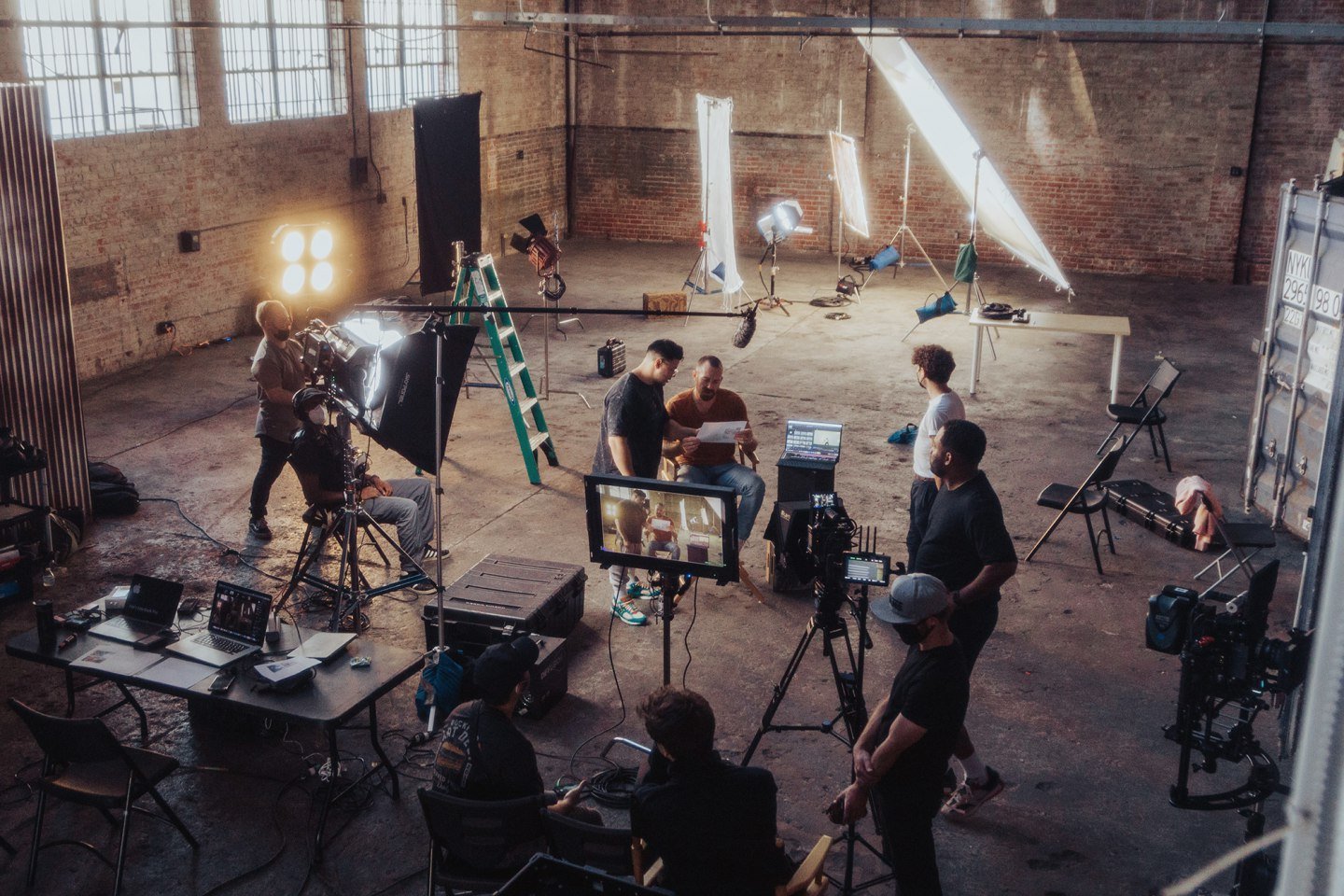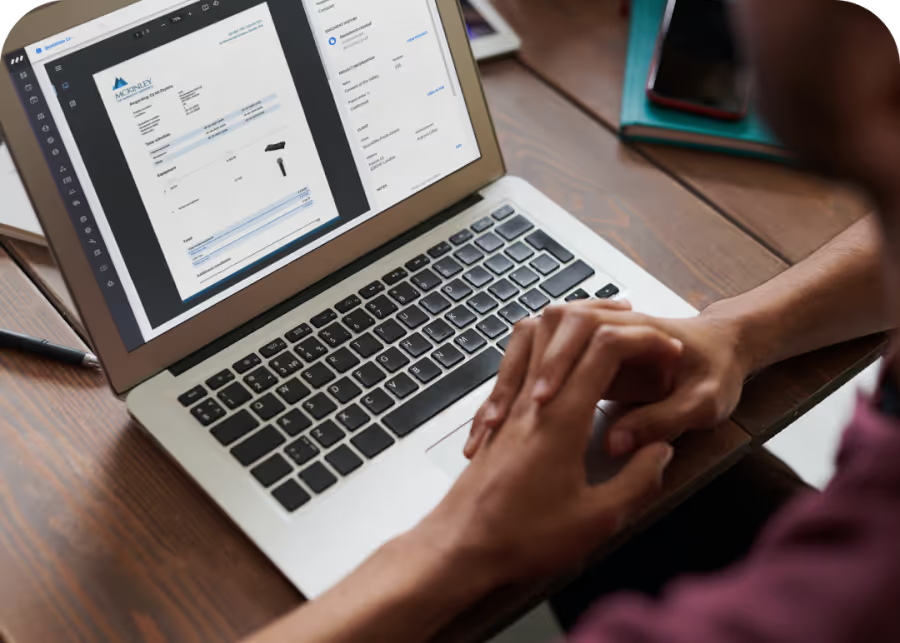Why Time Tracking Matters for AV, Events, and Media Production Teams

In the high-pressure world of AV production, live events, and media project management, time isn’t just money—it’s the entire budget. With constant changes, tight deadlines, and complex logistics, tracking time accurately can mean the difference between delivering on budget or missing the mark.
Time tracking helps businesses understand where time is spent, control labor costs, and improve project planning. This is especially important for teams working on complex, project-based workflows, such as those in AV rental and production—where staff move between preparation, transport, and on-site execution. With accurate time tracking, companies gain better insight into productivity and profitability across every phase of a project.
Whether you're managing multiple projects, coordinating crews, or handling billable and non-billable hours, a solid time-tracking solution keeps your team productive, accountable, and profitable. Let’s explore how time-tracking software—especially those offering automatic time tracking, task management, and project planning features—can transform how your production team works.
A Brief History of Time Tracking in Production
Time tracking isn’t new—it dates back to the Industrial Revolution. But its role has evolved dramatically in creative and technical fields. In early studios and AV companies, tracking hours was often manual, scribbled on whiteboards or log sheets.
Today, production workflows have gone digital. Tools now integrate with project management platforms, track time automatically, and provide real-time analytics. As media teams grow remote or hybrid, and events span multiple locations, time tracking is no longer optional—it's essential for scaling and sustainability.
Modern Applications: Time Tracking for AV, Events & Media
Here’s how time tracking plays out in real-world production scenarios:
- AV Companies: Track labor for setup/strike, on-site hours for techs, programming time for lighting/audio engineers.
- Event Production companies: Allocate hours by department (creative, logistics, sales) and improve quoting for similar future projects.
- Post-Production Studios: Log time spent per phase (editing, reviews, revisions), especially when projects are billed hourly.
- Freelancers: Monitor billable vs. non-billable time, manage multiple clients, and prove value with accurate records.
With features like mobile tracking, geolocation, and calendar sync, modern tools make it easier than ever to capture time across dynamic, on-the-go workflows.
What does Time Tracking cover?
Time tracking is the process of recording how much time is spent on various tasks, jobs, or projects. In AV, events, and media, it helps track time across pre-production, setup, showtime, strike, editing, and post-event reporting.
This ensures:
- Billable hours are logged for accurate invoicing
- Non-billable hours are tracked to assess overhead
- Employee time tracking is consistent and reportable
- Work hours are visible for employee productivity insights
Time tracking can be done manually (like with a timesheet app) or through an automated time tracking tool that logs activity in the background.
Why Use Time Tracking Software?
Modern time-tracking apps offer far more than a stopwatch—they’re now full-featured project management tools with powerful functionality to manage time, budgets, and teams efficiently.
Here’s what the best time tracking software includes:
- Automatic time tracking with minimal manual entry
- Task tracking across departments or projects
- Grid or calendar format to view schedules and time entries
- Integration with Google Calendar events or other platforms
- Expense tracking for cost control
- Support for unlimited users and unlimited projects
- Mobile and desktop apps for flexibility
- Tools for employee scheduling and team performance tracking
AV teams, creative agencies, and event pros benefit from these features for both workload management and accurate project progress tracking.
Bonus: Some of these tools support schedule reports, priority support, and secure data handling, ensuring data security across your workflow.
Key Benefits of Time Tracking for Project Managers
Whether you’re a project manager, AV lead, or producer, a smart time tracking solution will support:
- Accurate Billing. Get paid for every minute. Know your billable hours, track project budgets, and create detailed invoices with confidence.
- Team Accountability. Log employee hours consistently. Ensure your employee time tracker supports remote check-ins, mobile app use, and attendance tracking.
- Enhanced Project Planning. Track how long similar jobs take. Build better timelines and forecasts using valuable insights from past projects.
- Improved Productivity Tracking. With real-time time tracking features, you’ll see how time is allocated, spot bottlenecks, and improve employee productivity.
- Better Work-Life Balance. Avoid burnout with visibility into work hours, breaks, and overtime. A good tracking tool helps teams prioritize tasks and stay on schedule without overcommitting.
Manual Entry vs. Automated Time Tracking
Manual entry (e.g., traditional timesheet apps) can be prone to error or inconsistency. Automated time tracking provides a smoother experience, especially for busy production environments. Look for systems that:
- Log activity in the background
- Suggest time entries based on software use
- Sync with calendar events or task lists
This ensures seamless time tracking while minimizing disruption to your team’s flow.
How to Implement Time Tracking in Production Workflows
Here’s how AV and event teams can use employee time-tracking software and integrate it into their workflows:
- Choose the right tool – Start with a free plan to try it out. Look for a simple time-tracking app that works for your team size and setup.
- Customize your categories – Tag time by phase (pre-pro, load-in, editing), role, or client.
- Sync across platforms – Use a web app, desktop app, or mobile app that works with your current project management software.
- Set reminders and goals – Help team members stay on track with friendly nudges or auto-timers.
- Review reports weekly – Use detailed reports to assess team performance, refine timelines, and optimize project management.
You may also choose an all-in-one production management platform, like Rentman, that allows you to track everything from crew to equipment, plan projects, and nail the financials all in one place.
Final Thoughts: Streamlined Time Management for Production Pros
For AV professionals, event planners, and media creators, investing in the best time tracking software is a game-changer. With the right system, you can:
- Stay profitable by tracking every billable hour
- Improve planning and forecasting with project management tools
- Empower teams to perform at their best with clear goals and visibility
Whether you're working on small teams, running an agency, or managing complex shows, a reliable time tracker helps deliver better results—with less stress.
Take the next step: choose a time tracking app that fits your workflow, integrate it into your projects, and start gaining valuable insights into how your team works best.
Frequently asked questions
Previous blog posts

Mastering Budgeting and Forecasting in AV, Events, and Media Production
Mastering Budgeting and Forecasting in AV, Events, and Media Production

Mastering Event Planning: How a Budget Template Can Save Your Day
Mastering Event Planning: How a Budget Template Can Save Your Day

